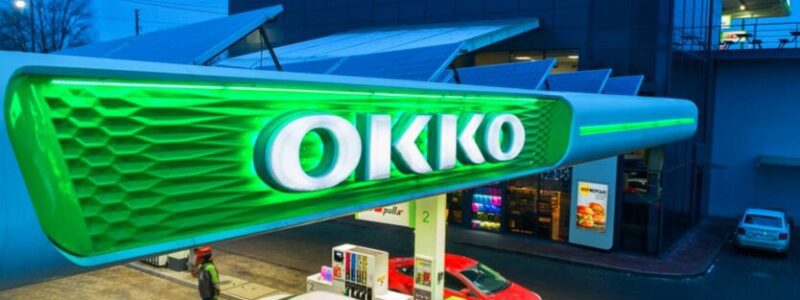
Ukrainian networks of filling stations have managed to master the European market of motor fuel after losing Russian and Belarusian fuel with the beginning of full-scale invasion of Russia thanks to the offer of competitive prices and fast contracts, Vasyl Danilyak, СЕО of OKKO group, said.
“Ukrainian companies did not enter their supply market, where everything was contracted a long time ago. Accordingly, they could outbid on price and fast contracts. Despite the unacceptable price, we started contracting 100 percent of possible resources in all corners of Europe,” he said at the Kiev International Economic Forum on Thursday.
At the same time, Danylyak noted that such decisions were made, among other things, emotionally, although they were not always economically justified.
He explained that the European chain of deliveries is much longer than the ones from the East and North directions, when “pipe deliveries were 3-4 days, by rail from the nearest Belarusian refineries to the average tank farm, the fuel took seven days at most.
“And in Europe the chain could stretch for two months or more. For example, we bought in the region of Amsterdam-Antwerp a fairly expensive resource. Supply logistics are complicated: first by small (because of the low level of the Rhine) barges to Germany, then it pours into big terminals, and then you wait for shipping windows because there are queues. So, in the middle of April we made an advance payment, and the last shipment arrived, if I’m not mistaken, in October,” Danilyak described the situation.
He noted, however, that even if the company had known in advance how difficult the delivery would be, it would still likely have made the contract.
“There was such a shortage that the decision was obvious. The fact that it would not be very profitable was not thought of then,” the CEO of “OKKO” assured.
He also stressed that changing the logistics of petroleum products as the war began was the biggest challenge not only for OKKO, but for the entire industry.
“It was the biggest challenge in the first month of the war that companies focused on. The whole market was confronted with the fact that on one day all deliveries were zeroed out, everyone fixed their losses at the time of February 24, who had prepayments, to whom the goods had not arrived in large quantities. Accordingly, everyone began to refocus on Western supplies. And in about three months, in June, the consumers felt a significant improvement, and in July everything was as if nothing had happened,” said Danilyak.
In addition, he expressed the opinion that dispersed business has more flexibility in crisis situations.
“Big and in one place is not always a good thing, although perhaps more cost-effective. Our business, where there are a lot of small businesses, has proven to be more resilient to stress than, for example, the steel industry, when the loss of two key businesses took out seventy percent of the business,” he argued his opinion.
In this connection Danilyak marked that “OKKO” would adhere to the policy of diversification in future too, that, in principle, the essence of the company business allows.
He also paid attention that war experience will teach many companies to follow fire safety rules strictly in accordance with all the requirements that “earlier they looked through the fingers” to some extent.